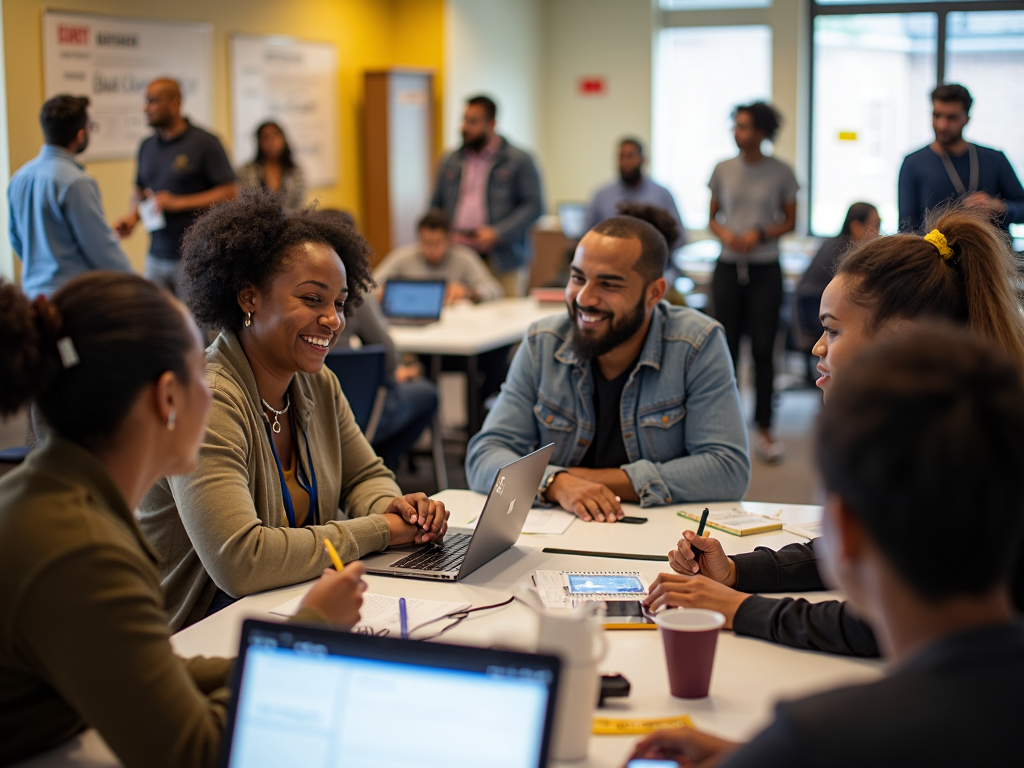Advocacy Volunteer Roles and Responsibilities: A Comprehensive Guide
By , June 12, 2025
Overview: Advocacy volunteers are essential in promoting causes and influencing public policy. They raise awareness, organize events, lobby for change, and engage with communities to drive social change. Their work ensures that important issues are heard and addressed.
The Importance of Advocacy
Advocacy is a powerful tool for creating change. It involves speaking up for a cause, influencing decision-makers, and mobilizing communities to take action. Advocacy volunteers are at the forefront of this work, dedicating their time and energy to make a difference. Their efforts can lead to significant changes in policies, laws, and societal attitudes. For example, advocacy has been instrumental in advancing civil rights, environmental protection, and public health initiatives. According to the National Council of Nonprofits, advocacy is a broad term that encompasses a range of activities aimed at influencing public policy and resource allocation.
Skills Required for Advocacy Volunteers
To be an effective advocacy volunteer, certain skills are essential. These include:
- Communication: Advocacy volunteers need to articulate their message clearly and persuasively to various audiences, from community members to policymakers.
- Research: Understanding the issue at hand and gathering and analyzing data is crucial for building a strong case.
- Networking: Building relationships with stakeholders, decision-makers, and other volunteers is key to successful advocacy.
- Organization: Planning and executing events, campaigns, and other initiatives requires strong organizational skills.
- Passion: A genuine commitment to the cause drives advocacy volunteers to make a difference.
These skills can be developed through training and experience. Many organizations offer workshops and resources to help volunteers hone their advocacy skills. For instance, the American Psychological Association provides a comprehensive guide on effective advocacy techniques.

Different Types of Advocacy Roles
Advocacy volunteers can take on a variety of roles, depending on their skills, interests, and the needs of the organization. Some common roles include:
- Campaigners: These volunteers focus on organizing and executing campaigns to raise awareness and drive action. They might create social media content, design flyers, or coordinate public demonstrations.
- Lobbyists: They work to influence decision-makers and policymakers to support the cause. This often involves meeting with legislators, writing letters, or testifying at hearings.
- Educators: These volunteers focus on educating the public about the issue and why it matters. They might lead workshops, create educational materials, or speak at community events.
- Fundraisers: They work to secure funding to support advocacy efforts. This can include organizing fundraising events, writing grant proposals, or soliciting donations.
- Community Organizers: These volunteers mobilize communities to take action and support the cause. They might coordinate volunteer efforts, build coalitions, or lead grassroots initiatives.
Each role is vital to the success of advocacy efforts, and volunteers often wear multiple hats depending on the situation.
The Impact of Advocacy Work
The impact of advocacy work can be profound. It can lead to changes in laws and policies, increased funding for important causes, and shifts in societal attitudes. Advocacy volunteers play a critical role in driving this change, and their efforts can have a lasting impact on communities and society as a whole. For example, advocacy efforts have led to landmark legislation such as the Clean Air Act and the Americans with Disabilities Act. According to a report by the Urban Institute, nonprofit advocacy has been instrumental in shaping public policy and improving social outcomes.

Personal Insights and Experiences
Advocacy work is not just about the big wins; it's also about the small, everyday victories that make a difference. For instance, I once volunteered with an organization that advocated for environmental conservation. My role was to organize community events to raise awareness about protecting natural habitats. Through these events, we educated hundreds of people and inspired them to take action, such as participating in local clean-up efforts or supporting conservation policies. It was incredibly rewarding to see the impact of our work and know that we were making a difference, one person at a time.
Another memorable experience was working with a group of volunteers to lobby for increased funding for mental health services. We met with local representatives, shared personal stories, and presented data on the need for better mental health resources. Our efforts contributed to a significant increase in funding for mental health programs in our community, directly benefiting countless individuals.
These experiences highlight the power of advocacy and the importance of volunteer involvement. They also underscore the need for persistence and collaboration in achieving meaningful change.
How to Get Involved as an Advocacy Volunteer
If you're interested in becoming an advocacy volunteer, here are some steps to get started:
- Identify Your Passion: Choose a cause that resonates with you. Whether it's environmental conservation, social justice, or public health, find an issue you're passionate about.
- Research Organizations: Look for organizations that align with your values and offer volunteer opportunities. Websites like VolunteerMatch can help you find local and virtual opportunities.
- Develop Your Skills: Take advantage of training programs and workshops to build your advocacy skills. Many organizations offer resources to help volunteers succeed.
- Start Small: Begin with manageable tasks, such as attending meetings or helping with social media outreach. As you gain experience, you can take on more responsibilities.
- Network and Collaborate: Connect with other volunteers and advocacy groups to share ideas and resources. Collaboration can amplify your impact.
Remember, every effort counts. Even small actions can contribute to larger changes over time.
Summary
Advocacy volunteers play a vital role in promoting causes and influencing public policy. Their work requires a unique set of skills, including communication, research, networking, organization, and passion. Volunteers can take on various roles, such as campaigners, lobbyists, educators, fundraisers, and community organizers, each contributing to the success of advocacy efforts. The impact of their work can be significant, leading to real change in communities and society. Whether you're new to advocacy or looking to deepen your involvement, there are many ways to make a difference as an advocacy volunteer.